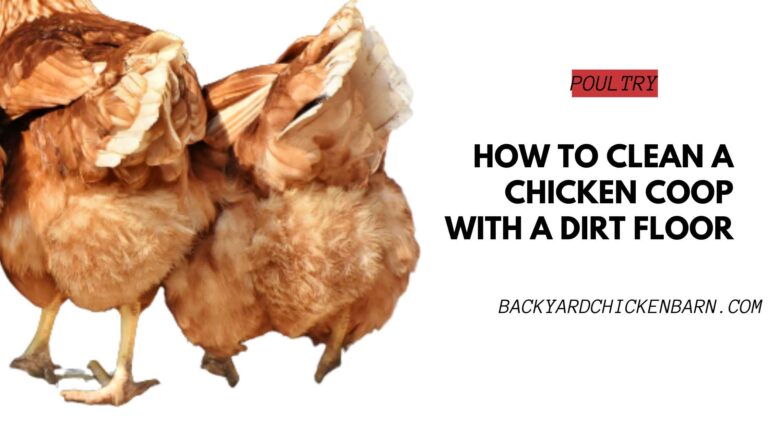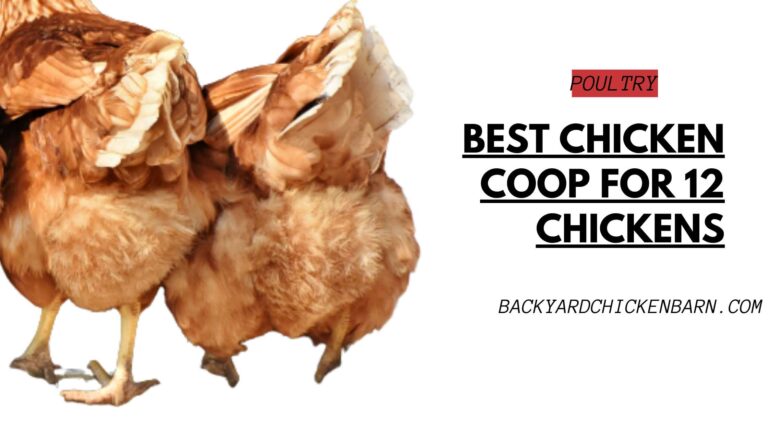Can Chickens Eat Potato Skins?
I’ve always been curious about the kinds of treats and foods my chickens can safely indulge in. Over the years, I’ve experimented with various fruits, veggies, and leftovers. But one item that always piqued my curiosity was potato skins. I’ve heard numerous debates, and today, I decided to dive deep into the question: Can chickens eat potato skins?
To put it directly, chickens can eat cooked potato skins, but raw potato skins might be harmful due to the presence of solanine, a naturally occurring toxic chemical. It’s always best to be safe, so if you’re considering giving your chickens potato skins, make sure they’re well-cooked and free from green patches.
Owner Experiences:
- Jenna M. ⭐⭐⭐⭐⭐ “I’ve given my flock boiled potato skins several times, and they seem to love them! I ensure that they are fully cooked, and there’s never been an issue.”
- Liam T. ⭐⭐⭐ “I once tossed some raw potato peels into the coop, not knowing they might be harmful. A couple of my hens didn’t feel too good after. I’d suggest always cooking them first.”
- Nadia K. ⭐⭐⭐⭐ “Potato skins are a hit in my backyard! I usually bake them till they’re crispy, and the chickens munch on them like they’re treats. Plus, no wastage in the kitchen!”
- Ronald P. ⭐⭐⭐⭐⭐ “As a rule of thumb, I avoid any greenish potato skins, cooked or raw. But the rest, when cooked, seems to be a delightful snack for my chickens.”
- Ellie G. ⭐⭐⭐ “I was always skeptical about potato skins, but after researching and ensuring they’re cooked properly, I’ve started giving them occasionally. My chickens are okay with them, though they’re not their top favorite.”
Potato skins, especially when they’re cooked, can be a sustainable way to reduce kitchen waste and provide an occasional treat for your chickens. However, as with anything, moderation is key.
Always ensure that the skins are free from any green areas, which indicate the presence of solanine. Furthermore, while potato skins can be a fun snack, they should not replace the primary, balanced diet essential for your chicken’s health.
Lastly, always observe your chickens when introducing a new food item. If you notice any adverse reactions, it might be best to remove that item from their diet and consult with a poultry expert.
After all, our feathered friends rely on us for their well-being, and it’s our duty to ensure they’re safe and happy.
ALSO SEE: Can Chickens Eat Tomatoes?
FAQs on Chickens Eating Potato Skins
- Can chickens eat potato skins?
- Yes, chickens can eat cooked potato skins. However, raw potato skins might contain solanine, which can be harmful.
- What is solanine?
- Solanine is a naturally occurring toxic chemical found in green parts of potatoes.
- How can I safely feed potato skins to my chickens?
- Ensure the potato skins are well-cooked and free from any green patches.
- Are raw potato skins bad for chickens?
- Raw potato skins, especially those with green areas, can be harmful due to the solanine content.
- What kind of potato skins did Jenna M. give her chickens?
- Jenna M. gave her flock boiled potato skins.
- How did Liam T.’s chickens react to raw potato peels?
- A couple of his hens didn’t feel too good after consuming raw potato peels.
- Do chickens like potato skins?
- Many chickens seem to enjoy potato skins, especially when they are cooked, but preferences can vary.
- How does Nadia K. prepare potato skins for her chickens?
- She bakes them until they’re crispy.
- What should you avoid when giving potato skins to chickens?
- Avoid any greenish potato skins, whether cooked or raw.
- Do potato skins replace regular chicken feed?
- No, potato skins are an occasional treat and should not replace a primary, balanced diet.
- How often can I feed potato skins to my chickens?
- Potato skins can be given occasionally, but ensure it doesn’t become a primary part of their diet.
- Can potato skins be considered a treat for chickens?
- Yes, many owners consider cooked potato skins a treat for their chickens.
- How do chickens react to new food items?
- Chickens can be curious, but it’s essential to observe any reactions when introducing a new food item.
- Should potato skins be a regular part of a chicken’s diet?
- No, while they can be a fun snack, they shouldn’t replace a balanced diet.
- What should I do if my chicken reacts adversely to potato skins?
- Remove the potato skins from their diet and consult with a poultry expert.
- Are there other foods I should be cautious about feeding to my chickens?
- Yes, always research and ensure that any food or treat is safe for poultry consumption.
- Is it sustainable to feed kitchen waste like potato skins to chickens?
- Yes, it can reduce kitchen waste, but always ensure the waste is safe for chickens.
- What’s the difference between potato skins and potato peels?
- They are essentially the same; the terms can be used interchangeably.
- How should I store potato skins for my chickens?
- Store them as you would for human consumption, but ensure they’re fresh when given to chickens.
- Why should potato skins be free from green areas?
- Green areas on potatoes indicate the presence of solanine, which is toxic.
- Do all potato varieties have solanine?
- All potatoes can develop solanine, especially when exposed to light.
- Are other parts of the potato safe for chickens?
- The flesh of the potato, when cooked, is generally safe. Avoid feeding green or sprouting parts.
- Can potato skins be given to other poultry or birds?
- Always research before giving any food to different types of birds or poultry.
- What happens if a chicken consumes too much solanine?
- It can lead to digestive and neurological problems. In severe cases, it can be fatal.
- How do I know if my potato skins have solanine?
- Look for green patches or sprouts. These are indicators of solanine presence.
- Can I feed mashed potatoes to chickens?
- Yes, as long as they don’t contain harmful additives or seasonings.
- Do all poultry owners feed potato skins to their chickens?
- Preferences vary. While some do, others might avoid it entirely.
- Why do some chickens not favor potato skins?
- Just like humans, chickens have individual tastes and might not prefer certain foods.
- Do cooked potato skins lose their nutritional value?
- Cooking might reduce some nutrients, but it makes the skins safer for chickens.
- Can chickens eat potato plants?
- It’s best to avoid. Potato plants, especially the leaves, can contain solanine.
- What other vegetables can chickens eat?
- Chickens can eat a variety of vegetables like lettuce, cucumbers, and carrots.
- Should I chop the potato skins before feeding them to the chickens?
- It’s not necessary, but smaller pieces might be easier for them to eat.
- Can potato skins cause obesity in chickens?
- Given in moderation, they shouldn’t be a problem. However, always balance with other foods.
- How do Ellie G.’s chickens feel about potato skins?
- They’re okay with them, though not their top favorite.
- Can potato skins be mixed with other treats for chickens?
- Yes, as long as all components are safe for chickens.
- Is it expensive to feed potato skins to chickens?
- Since potato skins are often kitchen waste, it can be a cost-effective treat.
- How do Ronald P.’s chickens react to potato skins?
- They enjoy them, especially when they’re cooked and free from green patches.
- Do organic potatoes have less solanine?
- Organic doesn’t affect solanine content. Always check for green patches.
- Can solanine be washed off from potato skins?
- No, solanine cannot be washed off. It’s best to cut away green areas.
- Are there any specific potato varieties that are safer for chickens?
- All potatoes can develop solanine. Always ensure they are properly stored and check for green areas before feeding.



